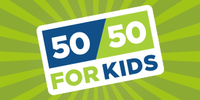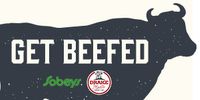Lyndon Linklater came bearing a drum and a packet of stories and experiences to share with a large audience at the Reid Thompson Library on Wednesday night. As part of Aboriginal Storytelling Month, the event was co-hosted by the Library and the City of Humboldt Cultural Services Department.
Linklater opened with a song in his own language, Anishinaabe (Ojibway) and launched into his feelings, deep and strongly held, about Canada. He extolled the virtues of the country that has many nationalities, and many Indigenous cultures. Linklater also acknowledged that the country has a dark past that is only now being addressed through sharing knowledge in the spirit of Truth and Reconciliation. He recounted the tale of a personal health crisis that was averted because Canada’s medicare system allowed for his care and return to health.
The audience learned of the diversity of Indigenous cultures and of the common experiences with residential schools and the subsequent struggles Indigenous families endured, with alcoholism, post-traumatic stress disorder, and violence often being a fabric of those stories.
Through engaging anecdotes and riddles, Linklater spelled out a history of thinking that led to practices that devalued women and First Nations people until well into the 20th Century.
“I’ll go so far as to say we have been conditioned to think a certain way in this country,” Linklater proposed to the crowd. “No disrespect to where we are right now, but from the books we’ve read, from the TV shows and the movies we’ve watched, even from our own moms and dads and the schools we’ve attended, once upon a time, women - not allowed to vote.”
Linklater relayed his own struggles with substance abuse, along with those of his father. He also conveyed those truths with wit and humour, keeping the audience engaged with questions. He commented on his family’s heritage, being the son of an Anishinaable father and a Cree mother, laughing that his father said he’d been “Cree mated.”
In a touching summation, Linklater acknowledged the dark past of Canada’s treatment of Indigenous people, but he urged the crowd not to lay blame at their own feet.
“You’re not to blame, as people. You didn’t know anything about them. But at the same time, this is my Canada; this is your Canada. This is our Canada, and it’s up to me and you to make Canada how it’s going to be. No government can do that for us. We’ve got to do that together.”
Both the Library and the Cultural Services Department continue to work on upcoming initiatives to support the Truth and Reconciliation Calls to Action.














